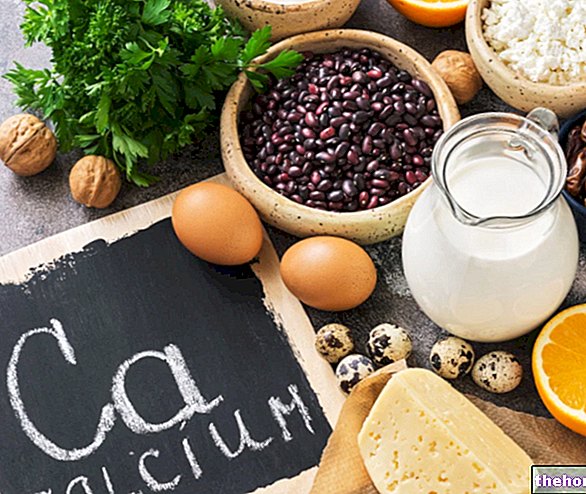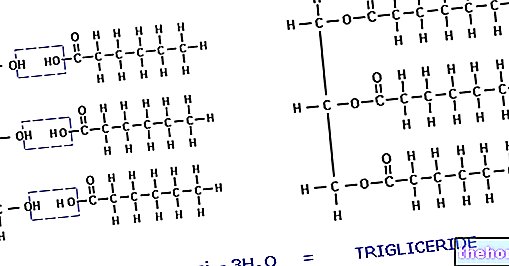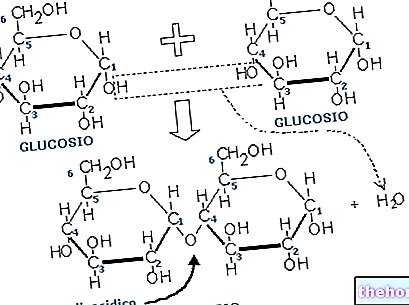
Later, despite the discovery that not all vitamins have amino groups, the original classification system was maintained, based on the identification of the different vitamins with the letters of the alphabet. However, a substantial difference was introduced: from that moment on, the nomenclature was no longer based on the diseases they cured or prevented, but on the chronological order of their discovery. Thus, when in 1913 the Americans McCollum and Davis discovered a second vitamin, alongside the simpler term "vitamin A" was coined at the end of the term retinol. Not surprisingly, the two scholars suspected that this was only the second of a long series of substances sharing the same functional characteristics.
Discovery of vitamins and their sourceSince their discovery, the interest in vitamins has always been high, although their popularity has followed a fluctuating trend. In particular, some scholars, more or less promptly denied by others, have argued for almost 40 years the "importance that a" optimal vitamin intake, difficult to satisfy with food alone, would have an effect on human health. Parallel to these studies, starting from the 1970s the intake of vitamin complexes in the form of pills and various supplements was increasingly encouraged. Subsequently the enthusiasm towards vitamin supplementation was dampened by the lack of studies that unequivocally confirmed its health efficacy and the absence of long-term side effects.
While the "vitamin craze" broke out in the United States, our country was only partially lapped by this "run-up to the magic pill". Even today many doctors, after supporting the importance of the Mediterranean diet, show prudence in recommending these supplements to healthy people.
While in Italy there is a general tendency to still refer to the old minimum doses (RDA), necessary to prevent diseases deriving from vitamin deficiencies in the diet, in other countries, see United States, these values are considered exceeded, especially for those vitamins that have shown greater health / preventive properties (vitamin E, C and some of the B group). In some cases, doses ranging from 5 to 100 times higher are recommended. For example, despite the fact that the "RDA of vitamin C is only 60 mg per day, on average it is recommended to reach doses of about 400-1000 milligrams up to propose, in line with the studies of some authors, megadoses of 5-10 grams. .
Despite conflicting studies and opinions, in recent years the business linked to vitamins of synthetic origin has been fueled by the widespread tendency to reduce the intake of fruit and vegetables in favor of high-calorie, not very satiating and micronutrient-poor foods.
Anti-aging, antioxidant, anti-obesity, anti-stress and so on and so forth ... the myth of vitamins is today more than ever rooted in our culture. They are added almost everywhere, in biscuits, cosmetics, pasta and in the colorful world of food supplements. The purpose, scientifically proven and only partially denied, is to receive greater protection against diseases and aging, through the strengthening of natural defense mechanisms and improving general physical efficiency.
from the consumption of fresh food. A bit "as happens in the herbal field, where the phytocomplex (heterogeneous set of substances contained in the drug), although less effective in treating the acute phase of a disease, has fewer contraindications than medicines containing the active ingredient extracted from the same plant in concentrated form , vitamins contained in foods, in addition to enjoying greater bioavailability, cause fewer problems than high-dose vitamin supplements.
So it seems a bit too optimistic to hope to make up for the shortcomings of an "unregulated diet with a simple pill that provides in return health and vitality. It is better to concentrate, first of all, on the consumption of a great variety of very fresh foods, considering vitamin supplementation as a valid ally in all those cases of increased need or low dietary intake. In the latter case, before resorting to a pill that has very little magic, it is essential to make every reasonable effort to improve one's eating habits.
In conclusion, we can compare vitamin supplements to those sugared almonds useful for maintaining a minimum of oral hygiene when it is not possible to use the traditional toothbrush. Although these products have a certain effectiveness and a high degree of practicality, this does not authorize us to consider them, too sufficiently, substitutes for the old and more popular foods and toothbrushes.
Although synthetic vitamins represent in many cases a valid ally in the fight against aging and physical fatigue, the battle is won first of all at the table, with healthy, varied and genuine foods, which represent the real winning weapon against the pitfalls of a style of life often lacking in attention to physical and mental health.



.jpg)
























